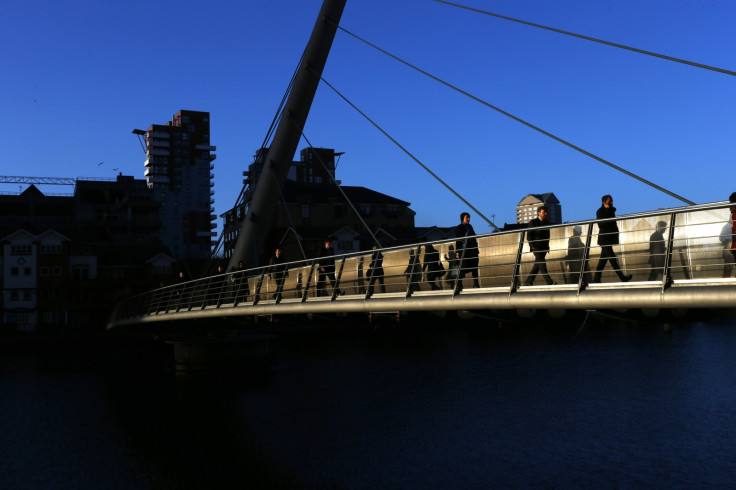Income squeeze bites as wages grow at slowest pace since 2015
ONS says average weekly earnings adjusted for inflation fall 0.6% year-on-year.

Britain's basic wages are rapidly falling behind the rate of inflation, as real pay declined for the second consecutive month, while wages increased at the slowest pace in two years.
According to the Office for National Statistics (ONS), basic salaries excluding bonuses grew 1.7% in the three months to April, below the 2% forecast and lower than the upwardly revised 1.8% recorded in the previous quarter. The rate of increase was the slowest on record since 2015.
Average weekly earnings including bonuses, meanwhile, climbed 2.1% in the quarter, falling short of the 2.4% forecast and of the upwardly revised 2.3% gain recorded in the previous month.
When adjusted for inflation, however, average weekly earnings fell 0.6% year-on-year when excluding bonuses and slid 0.4% from a year earlier when bonus are taken into account.
Data released yesterday (13 June) by the ONS showed inflation rose at the fastest pace since June 2013 in May, climbing to 2.9% and exceeding the forecast the Bank of England issued last month, when it indicated it expected inflation would peak at 2.8% this autumn.
Naeem Aslam, chief market analyst at Think Markets UK, said the weakness in the pound was the major factor pushing the inflation higher and this is taking the toll on the consumers.
"Theresa May is considering to move away from her hard Brexit approach as she has no choice left but to throw in the towel," he added.
"A soft Brexit would be good for the UK economy in the longer term, but in the short term, the uncertainty around the Brexit is going to maintain the pressure on the currency and therefore we do think that the currency may still depreciate."
There was slightly better news on the unemployment front, as the unemployment rate in the quarter through to April stood at 4.6%, compared with 5.1% in the corresponding period last year.
The figure was the joint-lowest level on record since 1975.
Labour market remains strong
Meanwhile, the number of employed workers rose less than expected, climbing by 109,000 to 31.95 million in the quarter to March, compared to the previous three months. The figure was 372,000 higher than in the corresponding period last year and slightly below analysts' expectations for an 125,000 gain.
The number of unemployed people, on the other hand, fell by 50,000 from the previous quarter to 1.53 million, 145,000 fewer than in the corresponding period a year earlier.
The ONS added the employment rate – the proportion of people aged from 16 to 64 who were in work – was 74.8%, the joint highest since comparable records began in 1971.
Scott Bowman, UK economist at Capital Economics, said the strength of employment growth was a reason to be optimistic that the slowdown in spending will not be too severe.
"We think that after peaking at a bit over 3% in the fourth quarter, inflation will fall back towards target as the upward pressures from the drop in the pound start to fade," he said.
"Accordingly, the forthcoming squeeze on real wage growth should be nowhere near as severe or prolonged as that seen after the financial crisis."
© Copyright IBTimes 2025. All rights reserved.






















